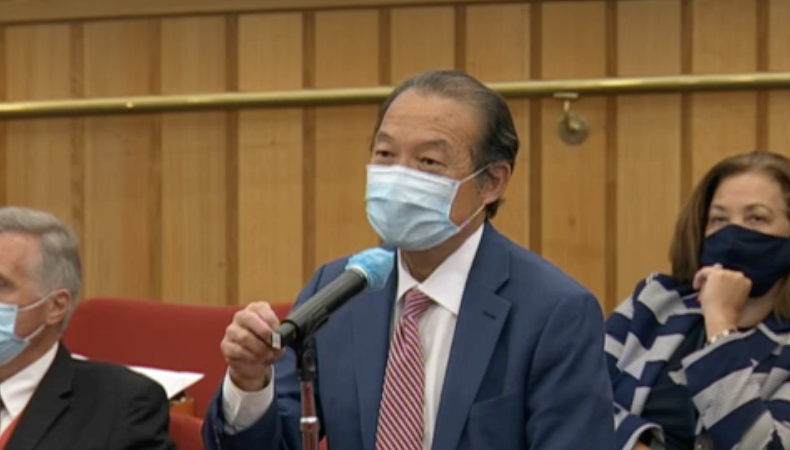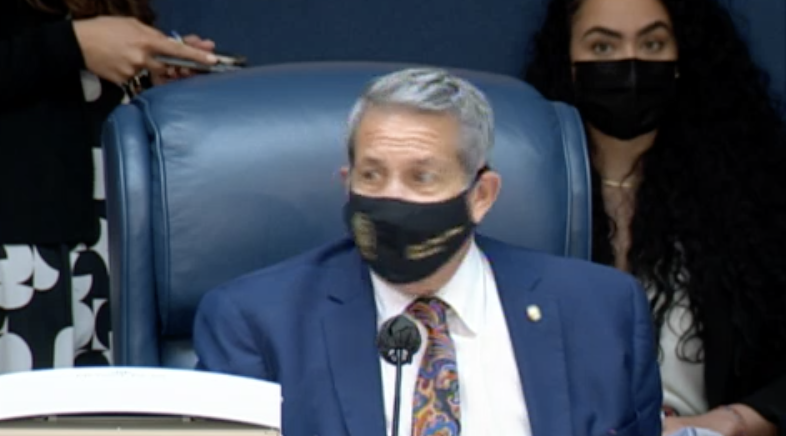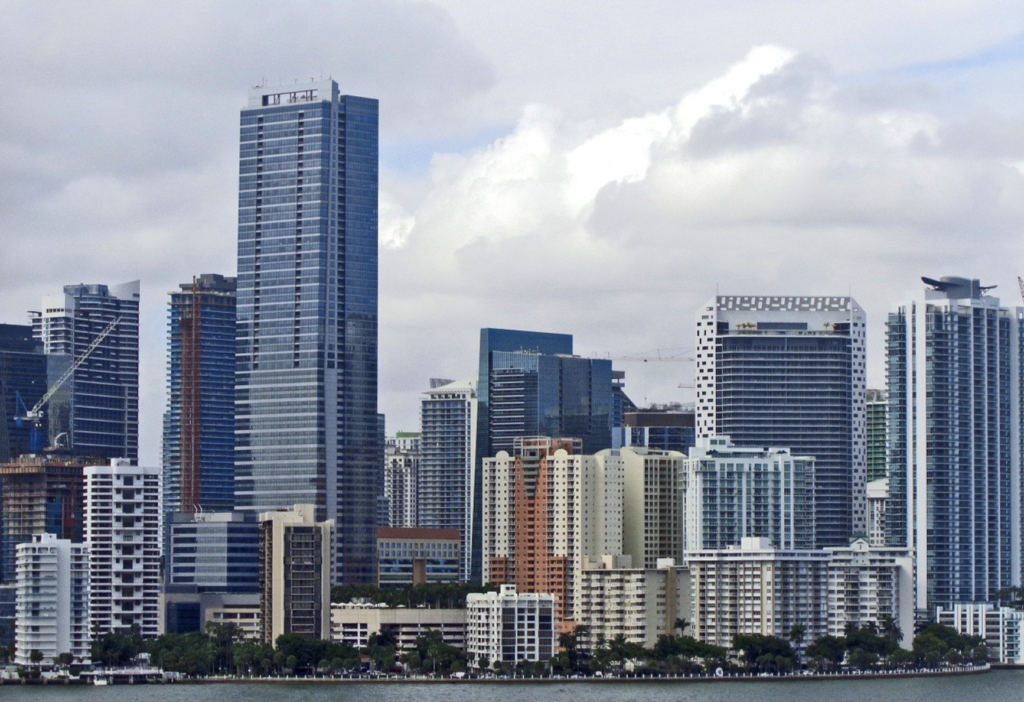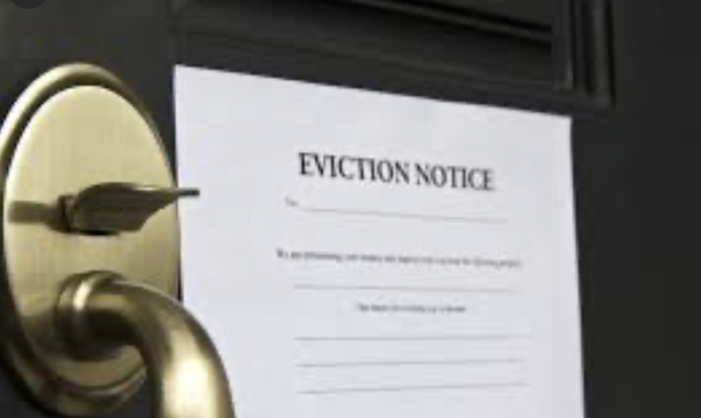But did ‘bad actors’ get some of the $60 million in federal funding?
Some renters who are behind on their rent but protected by an emergency COVID eviction moratorium might find themselves on the street soon as Miami-Dade takes steps to resume residential ousters.
The county already announced last month that it would start issuing writs of possession and/or eviction notices on commercial properties beginning Friday. Commissioners on Tuesday approved a $2 million contract (federal housing funds, not general funds) with De Leon and De Leon to represent the county in evictions at public housing units for the next three years.
Evictions for illegal activity — such as drug use — not for non payment, clarified Michael Liu, director of Miami-Dade Public Housing and Community Development.
“We are certainly still involved and taking action in regards to lease violations,” Liu said. “There’s criminal actions that occur that endanger others. There are issues related to unauthorized boarders. And there are issues related to rent. However, just as other landlords in the county are affected by moratoriums, so are we.
Read related: La Alcaldesa Daniella Levine Cava gets installed, declares war on COVID
“But we have a right and we certainly have been encouraged by HUD, who made it very clear, that the obligations that public housing residents have regarding their lease are still there, to the extent that they are responsible for meeting those obligations, we also have an obligation to make sure that they are enforced,” Liu added.

“Unfortunately, even in public housing, we have bad actors.”
Commission Chairman Jose “Pepe” Diaz said he would come back soon with legislation to provide relief to other landlords — not just the county.
“How about the other housing? How about the public sector? People haven’t paid rent in over a year,” Diaz said. “This item shows preference and I have an issue with that.”
He reminded the mayor that Miami-Dade is the only county in Florida that has not resumed evictions.
“This community is suffering. We’re teeing it up for a major disaster,” Diaz said, referring to landlords who have been unpaid for almost a year. He said he will bring in bankers to “give a presentation about what we’re going to be looking at in the next few months and how bad it’s going to be.
Read related: Affordable housing tops issues at first Miami-Dade budget hearing
“The rest of the states has moved on and is going full throttle on evictions as needed and I don’t understand why we have to hold back,” Diaz said. “I will be bringing in legislation, I didn’t want to do it, I’ve held back a long time. and we’ll be dealing with this matter once and for all. Because I cannot sit by and see what is going to happen. It is up to my comments to stand with me. But enough is enough.”

The county had already provided more than $25 million in federal rent and mortgage relief even before the $60 million Emergency Rental Assistance Program pushed by Mayor Daniella Levine Cava and Commissioner Eileen Higgins was approved last month. The deadline to apply is March 15 (but Ladra suspects it will be extended). Miami and Hialeah residents need not apply because those cities have their own funding, La Alcaldesa said (and Ladra suspects she’s a one-termer).
Not everybody is sold on the program because it could give limited CARES funding to people who were already in default with their lease or behind on their rent before the pandemic. By prioritizing writs of possession that were pending, rather than looming, the benefits may have gone to “bad actors,” said Commissioner Raquel Regalado, who’s been talking about this for months.
The program only offers landlord back rent of up to $3,000 a month retroactive to March of last year, not any earlier, but landlords who are deep in the hole may take advantage of the year — it’s up to $36,000 in one fell swoop, after all — and then evict the tenants who were deadbeats before COVID and won’t keep up with payments post pandemic, either.
“That’s part of what’s some of us have been talking about that’s gotten lost in this conversation,” Regalado said.
“If someone is in the eviction process because of COVID, they would sign off on an affidavit and are protected by the CDC until the end of this month. In the case of public housing, that protection is actually extended through June,” she added.
“We’ve been talking about these bad actors. Some of these bad actors are sitting on a writ of possession,” Regalado said, welcoming Diaz’s measure.
“I think we’ve gone around and around the mulberry bush enough times.”

Commissioner Rene Garcia said he has been getting calls from landlords about squatters, but Levine Cava said squatters have never been protected. Police Director J.D. Patterson said that the economic crimes division is investigating 1,000 to 1,200 complaints “to determine if there are squatters. and they will in fact, eject that squatter.
Read related: More Miami-Dade closures, screenings on ‘fluid’ Day 1 of COVID-19 isolation
“We do believe, in fact, that it’s time for America to be America,” Patterson said.
More than 5,000 evictions were filed in Miami-Dade from March through December of last year, but police have been limited to enforce only cases that are filed on or before March 12, 2020.
Diaz said he had asked for a breakdown two weeks ago and that he wants to see the numbers.
“At no time have I said anything about anybody that signed a declaration on the COVID issue. All I’m talking about, I’m sure all the senator is talking about, is the bad actors,” Diaz said at the meeting.
“These writs are piling up.”
Soon, it could be homeless people piling up.

